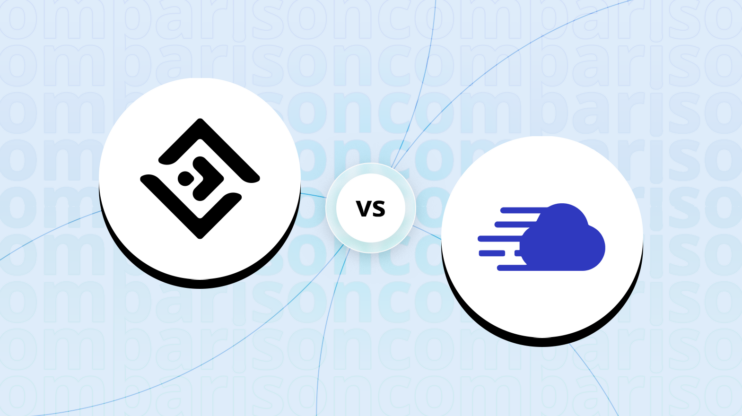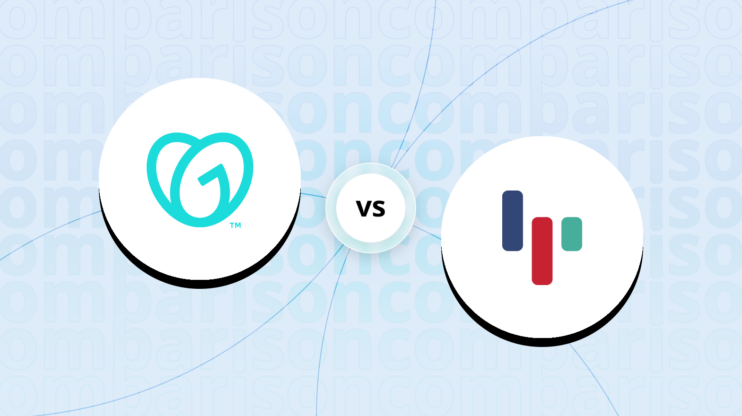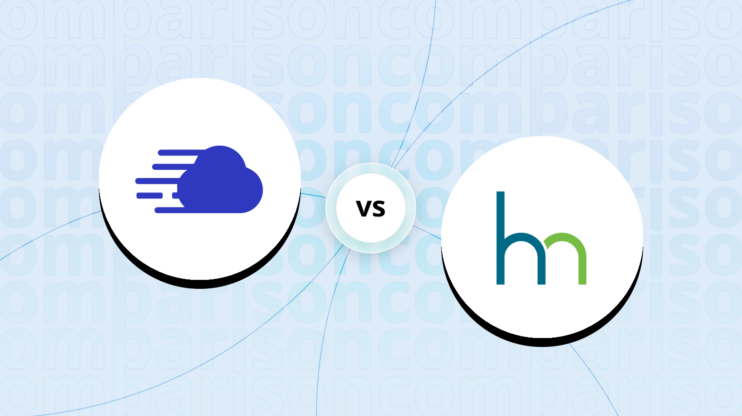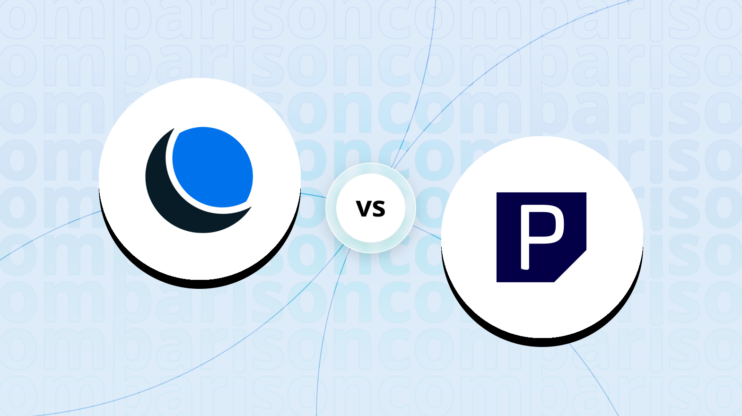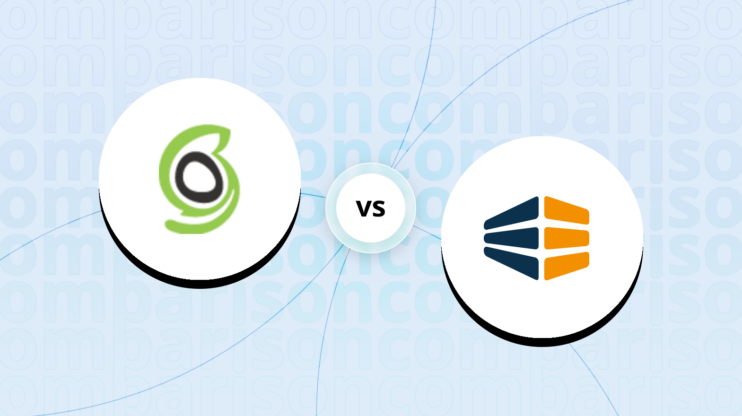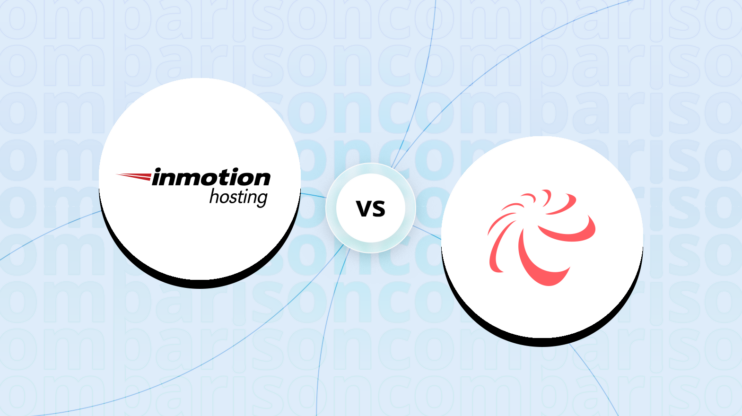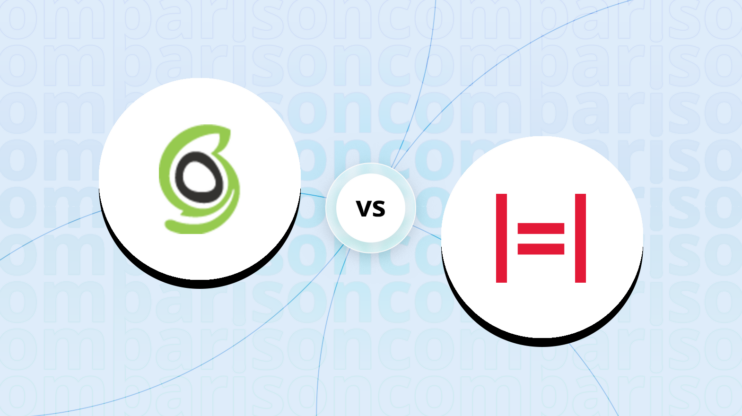Final verdict
Looking over DigitalOcean vs. Cloudways, both offer compelling features but cater to somewhat different needs.
-
Cloudways (Overall grade: 8.5)
impresses with user-friendly managed cloud hosting that requires minimal technical knowledge to operate. Its control panel simplifies server and application management, making it easy for users to handle tasks like backups and server cloning with a single click. The platform integrates advanced caching solutions, which ensures optimized performance. Cloudways offers robust email capabilities via third-party add-ons and a free site migration service, making it an appealing choice for those prioritizing instant setup without worrying about the underlying infrastructure. The customer support is highly praised, especially for its 24/7 availability and multiple support channels, including phone support with premium plans. However, it slightly lacks in pricing transparency and integrated email hosting.
DigitalOcean (Overall grade: 8.3)
stands out for its flexible and customizable Droplets, ideal for users requiring greater control over their server configurations. The platform excels in its security features, offering extensive compliance certifications and robust protection measures such as DDoS protection, firewalls, and automatic backups. Its straightforward, transparent pricing attracts small to medium-sized businesses and startups looking for cost-effective solutions. Although requiring more technical expertise compared to Cloudways, DigitalOcean provides comprehensive documentation and community support to assist users. Despite its somewhat slower customer support response times and limited server configurations, DigitalOcean remains a reliable hosting provider with impressive scalability and performance capabilities.
 Overall grade:8.3 |
 Overall grade:8.5 |
|
|---|---|---|
| Uptime and Availability | 9.2 | 9.5 |
| Hosting Performance | 8.8 | 8.8 |
| Hosting Security | 9.1 | 8.0 |
| Price | 8.7 | 8.6 |
| Hosting Features | 6.9 | 6.9 |
| Ease Of Setup | 8.2 | 9.0 |
| User Management | 8.0 | 8.2 |
| Customer Support | 7.8 | 9.2 |
| User feedback | 4.6/5 | 4.7/5 |
Hosting types offered
Both platforms provide a variety of hosting types, each designed to meet the different needs of users.
 |
 |
|
|---|---|---|
| Shared hosting | ||
| Cloud hosting | ||
| WordPress hosting | ||
| Ecommerce hosting | ||
| VPS hosting | ||
| Dedicated hosting |
Although both offer a variety of hosting plans tailored to different needs, in certain cases, one platform may prove to be more suitable.
Detailed comparison
Uptime and availability
Evaluates the average uptime statistics, uptime guarantee and overall availability of the hosting
provider
Score Components:
- Uptime percentage (30%): evaluates the uptime statistics in given period of time
- Uptime guarantee (20%): Assesses if the platform offers an uptime guarantee and
whether the actual uptime matches the promised guarantee. - General performance (25%): Evaluates how fast is the average response time and overall
it’s stability. - Responsiveness (10%): Adaptability to different devices and screen sizes.
- Availability (25%): Reflects the total downtime and number of outages.
 9.2
9.2
 9.5
9.5
🏆 Winner
Cloudways: It’s superior uptime and significantly faster response times make Cloudways a better choice for users who require high performance and stability from their hosting provider.
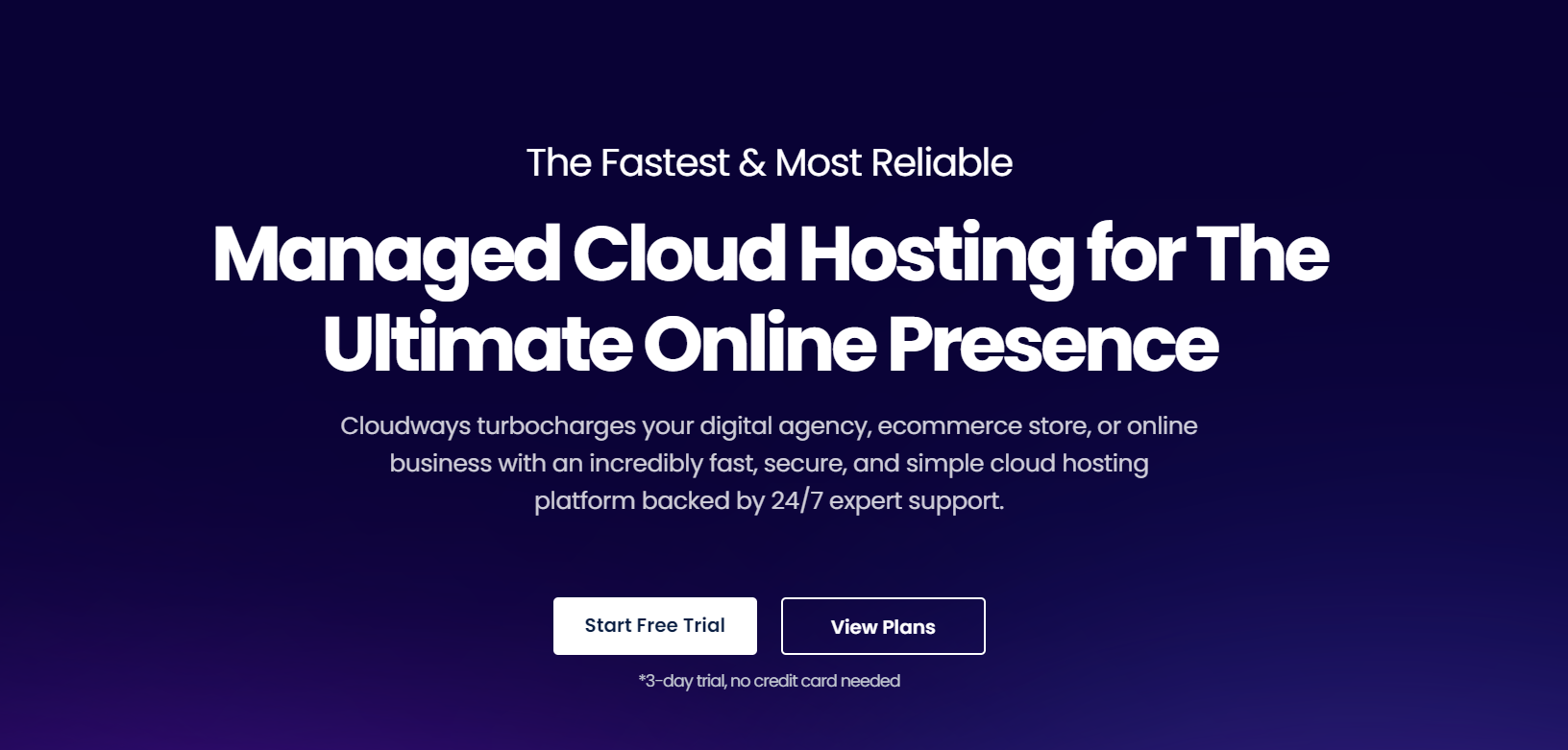
Cloudways shows a slightly superior performance in terms of reliability and speed. Both hosting services have impressive uptimes, with Cloudways slightly edging out Example hosting one with a 99.99% uptime over a 3-month period compared to Example hosting one’s 99.89%. This difference in uptime is reflected in the number and duration of outages, where Cloudways experienced 3 outages totaling 12 minutes, while Example hosting one had 5 outages totaling 2h 12 minutes.
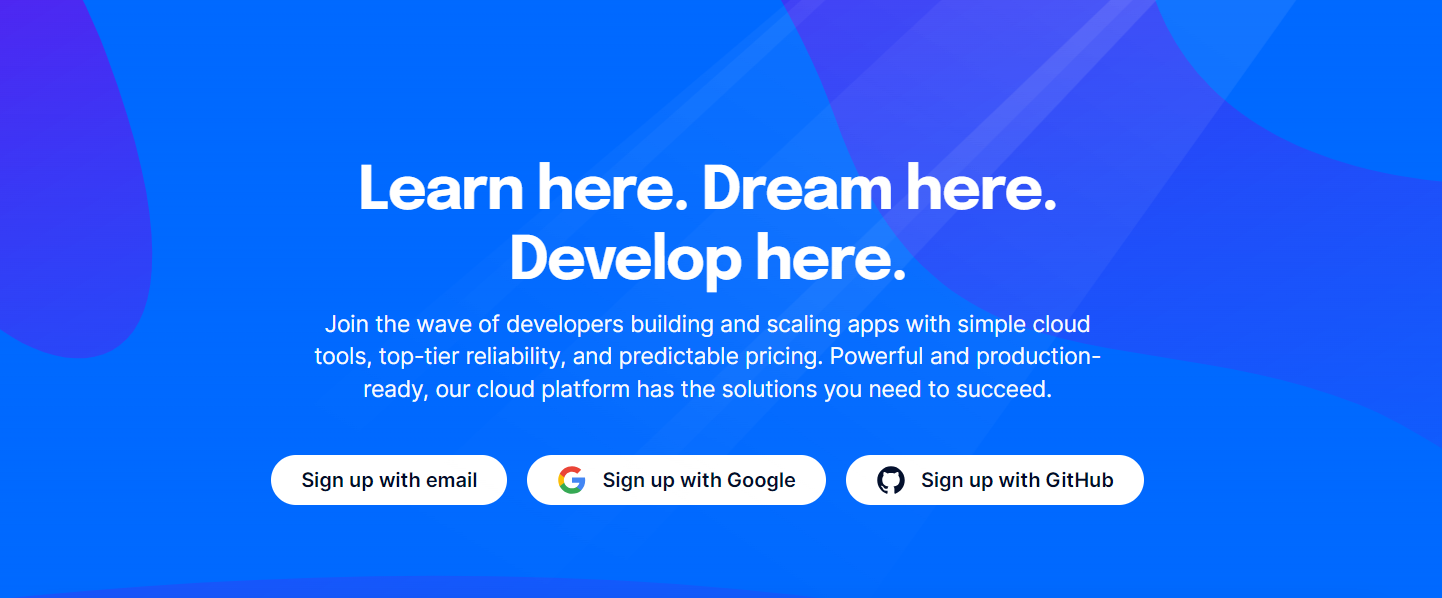
Cloudways’s advantage is more pronounced in terms of server response time. It boasted an average response time of 229ms, which is significantly lower than the shared hosting industry standard and faster than Example hosting one’s average response time of 670ms, which can peak up to 1152ms. This suggests that Cloudways is not only more reliable in maintaining uptime but also in delivering faster website loading speeds, making it a preferable option for users prioritizing performance.
Hosting performance
Score Components:
- Hosting speed (30%): This includes SSD quality, Load times, PageSpeed score ranges,
additional information on website speed, built-in plugins for performance enhancement, available caching
methods, and CPU/RAM options - CDN (20%): Considers whether CDN is available or not, whether it’s free or paid, and
the quality of the CDN service - Available data centers (30%): Evaluates the number of data centers and their locations
globally. - Scalibility (20%): Looks at whether elastic scaling is available, the process required
to scale (manual upgrade vs. automatic scaling), the presence of dedicated servers, and the costs
associated with scaling.
 8.8
8.8
 8.8
8.8
🏆 Winner
DigitalOcean: Offering highly reliable and customizable Droplets with a massive global reach.
When evaluating the general performance of DigitalOcean and Cloudways, both hosting services excel in their offerings. DigitalOcean leverages SSD storage for faster load times and incorporates a CDN to distribute content efficiently across its 14 data centers worldwide. Additionally, it has various caching mechanisms, including page and object caching, to accelerate website speed. On the other hand, Cloudways also uses SSD drives and integrates advanced caching solutions like Varnish, Nginx, and Redis for faster performance. However, it doesn’t mention an integrated CDN but provides Cloudflare Enterprise for added security and speed. Both services offer PHP 8 support and scalable CPU/RAM options.
Website Speed
Website speed is top-notch for both hosting providers. DigitalOcean offers SSD storage, automatic backups, and load balancing to handle traffic effectively. Cloudways provides an optimized stack including NGINX, Apache, and MySQL/MariaDB, along with built-in advanced caches. While Cloudways’s PHP 8.2-ready servers and preinstalled WordPress plugins like Breeze further optimize performance, DigitalOcean focuses on real-time uptime and latency alerts for superior monitoring.
Scalability
Scalability is a key feature for both services. DigitalOcean offers horizontal scaling and techniques like load balancing to handle peak loads efficiently. However, the flexibility of Cloudways allows for vertical scaling where resources like RAM, CPU, and storage can be increased with ease. Cloudways offers 1-click actions for backup/restore and server cloning, simplifying resource management. Costs for scaling depend on the specific resources required, and for both services, pricing adjustments will be necessary. Dedicated servers were not explicitly mentioned for either provider, so this remains unclear.
Hosting security
and regulatory requirements
Score Components:
- Technical security measures (40%): This includes encryption, firewalls, DDoS
protection, secure configurations, server monitoring, access control and availability of security addons
(e.g Sitelock security). - Operational security measures (30%): Encompasses data privacy, backups and data
redundancy. - Compliance and certifications (20%): Adherence to legal and regulatory requirements
(e.g., GDPR, HIPAA) and possession of certifications (e.g., ISO 27001, SOC 2). - Business and reliability (10%): Factors in the provider’s reputation, uptime
guarantees, and customer support.
 9.1
9.1
 8.0
8.0
🏆 Winner DigitalOcean: DigitalOcean offers comprehensive security features and more certifications compared to Cloudways.
Both DigitalOcean and Cloudways, have notable differences in their approaches to technical and operational security, as well as in their compliance with regulations.
Technical security measures:
DigitalOcean provides robust technical security with features like DDoS protection, firewalls, and two-factor authentication (2FA), alongside support for multiple PHP versions. Cloudways also offers solid technical security measures, including built-in SSL certificates and PHP 8 compatibility, bot protection, and auto-healing servers. DigitalOcean adds more layers with SSH access, automatic backups, and data encryption, whereas Cloudways emphasizes automated protection mechanisms like Fail2ban and MalCare-powered bot protection. Both platforms prioritize secure PHP environments, but DigitalOcean’s extensive DDoS protection and automated backups add an extra layer of security.
Operational security measures:
DigitalOcean and Cloudways both implement operational security with dedicated firewalls. While DigitalOcean excels with comprehensive SOC 2 and SOC 3 certifications, Cloudways bolsters its operational security through tools such as regular security patches and updates. Cloudways’ platform-level firewalls and IP whitelisting enhance login security, while DigitalOcean offers additional protection through web application firewalls (WAF) and virtual private clouds (VPC). Furthermore, DigitalOcean’s robust availability framework is ensured with load balancers and managed databases, whereas Cloudways uses auto-healing servers to minimize operational disruptions.
Compliance and certifications:
DigitalOcean stands strong with compliance, boasting GDPR, PCI, SOC 2 Type II, SOC 3 Type II, ISO/IEC 27001:2013, CSA STAR Level 1, and APEC CBPR PRP certifications. Cloudways’ compliance primarily relies on the PCI-DSS compliant infrastructure of its cloud providers and its own security measures aligning with GDPR. While Cloudways offers a solid foundation, DigitalOcean’s suite of compliance certifications clearly stands out.
 |
 |
|
|---|---|---|
SSL certificate |
Available |
Free Let’s Encrypt SSL |
Additional security features |
DDoS protection, firewalls, SSH access, 2FA |
Fail2ban, bot protection, auto-healing servers |
PHP versions |
Multiple versions supported |
Supports PHP 8, 5.6, and latest versions up to 8.2 |
GDPR compliance |
Compliant |
Likely compliant |
HIPAA compliance |
Not specified |
Not specified |
PCI compliance |
PCI-DSS certified data centers |
PCI-DSS compliant hardware from providers |
Hosting features
Score Components:
- Domains (20%): Assesses the availability of a free domain, domain purchase options, and
pricing - Email (15%): Considers if the provider offers full email hosting, or is reselling
third-party service, and if the email is only transactional or not - Website builder (15%): Checks if website builder is available, and it’s user
friendliness and overall the level of customization allowed. - Staging environment (20%): Determines if a staging environment is available, allowing
for testing changes before going live. - FTP & SFTP accounts (10%): Evaluates if and how easily users can access FTP and
SFTP accounts - Git and SSH access (20%): Assess whether Git is integrated into the hosting service and
if SSH access is provided
 6.9
6.9
 6.9
6.9
🏆 Winner
DigitalOcean: A reliable and versatile hosting provider offering a variety of hosting types and strong security features.
Both DigitalOcean and Cloudways bring robust features to the table, each catering to different aspects of user needs. DigitalOcean provides a wide array of hosting types, including dedicated, shared, and managed options, which appeals to those seeking flexibility. It shines with its security essentials like DDoS protection, firewalls, SSL certificates, and automatic backups, ensuring that your data remains safe. DigitalOcean does not explicitly mention a website builder; however, its robust support through community tutorials and documentation helps users with complex customizations. Its extensive list of additional services, including content delivery networks and cloud firewalls, coupled with its 99.99% uptime, makes it a dependable choice for most users.
Cloudways, on the other hand, emphasizes performance and user-friendliness. With built-in caching solutions like Memcached and Varnish, along with an optimized stack including NGINX and PHP-FPM, it’s designed for high-speed operations. Cloudways offers a more straightforward user interface with features like 1-click backups and server cloning, which is a boon for users who prioritize ease of use. It includes a free migration service and capabilities for team collaboration, making it attractive for businesses of varying sizes. The presence of a website builder, along with staging environments, further simplifies website management for users seeking comprehensive tools without needing deep technical knowledge.
 |
 |
|
|---|---|---|
Free domain |
No |
No |
Free SSL |
Yes |
Yes |
Email hosting |
No |
Rackspace Email Add-on & Elastic Email |
Website builder |
No |
Yes |
Staging environment |
No |
Yes |
FTP & SFTP accounts |
Configurable via SSH access |
Yes |
Git and SSH access |
Yes |
Yes |
Free backup |
Yes |
Automated backups |
Money-back guarantee |
No |
No |
a location.
As a result in rare cases the features mentioned here can differ from the ones you see on their websites.
Both providers support a range of users from beginners to experts with user-friendly website builders and WordPress staging areas. However, in terms of developer tools, both DigitalOcean and Cloudways offer robust options including SSH access, support for multiple programming languages, and Git for version control, thus appealing to developers looking for advanced capabilities.
Email services:
DigitalOcean does not offer email hosting services, which could be a limitation for users who need integrated email solutions. On the other hand, Cloudways provides enhanced email capabilities through its Rackspace Email Add-on and Elastic Email, supporting both transactional emails and user-managed email campaigns. This third-party integration makes Cloudways a more rounded option for those who require robust email functionalities.
Price
Score Components:
- Plan value (40%): What each pricing tier offers.
- Transparency and clarity (30%): Clearness of pricing structures.
- Flexibility of plans (20%): Range of options to suit different budgets.
- Hidden costs (10%): Additional expenses not included in the plan.
 8.7
8.7
 8.6
8.6
🏆 Winner DigitalOcean: A reliable hosting provider with a variety of affordable and feature-rich plans.
Evaluating the pricing of plans among various hosting providers can be complex due to their differing pricing and renewal strategies. Additionally, certain plans require annual commitments, which adds to the difficulty of making comparisons. The prices listed are based on monthly commitments; plans requiring annual commitments are indicated. Additionally, although some providers offer identical plans for WordPress and shared hosting, we have created separate tables for each to enhance clarity.
DigitalOcean and Cloudways both provide competitive hosting options. DigitalOcean offers basic WordPress hosting starting at $4/month while Cloudways starts at $11/month. Their VPS hosting plans start at $4/month and $11/month respectively. Shared hosting on DigitalOcean begins at $4/month, whereas Cloudways does not offer a distinct shared hosting plan. Cloud plans for DigitalOcean range from $4/month to $131/month, based on storage and memory needs. Cloudways, on the other hand, offers a broader range with plans from $11/month to $1056/month, including options for hosting on AWS or Google Compute Engine, providing flexibility for varied requirements.
 |
 |
|---|---|
|
Basic Droplet $4
1-Click WordPress installation, Free SSL certificate, Automatic backups, DDoS Protection Value for price:8.7
|
DO1GB $11
1 Core Processor, 25GB Storage, 1TB Bandwidth, 24/7 support, Free SSL Value for price:8.6
|
| N/A |
DO2GB $24
1 Core Processor, 50GB Storage, 2TB Bandwidth, 24/7 support, Free SSL Value for price:8.5
|
| N/A |
DO4GB $46
2 Core Processor, 80GB Storage, 4TB Bandwidth, 24/7 support, Free SSL Value for price:8.4
|
| N/A |
DO8GB $88
4 Core Processor, 160GB Storage, 5TB Bandwidth, 24/7 support, Free SSL Value for price:8.2
|
 |
 |
|---|---|
|
Secure Web Hosting $4
DDoS Protection, VPS hosting, Two-factor authentication, SSH access, SSL Certificates, Automatic backups Value for price:8.7
|
N/A |
|
Website Hosting Basic Droplet $4
Simple and reliable cloud hosting, 1-click apps, 99.99% uptime SLA, Transparent pricing, Basic Droplet ($4/month) Value for price:8.7
|
N/A |
|
App Platform Basic $5
Simple web hosting, 14 globally distributed data centers, Transparent pricing, App Platform ($5/month) Value for price:8.5
|
N/A |
 |
 |
|---|---|
|
Shared CPU Droplet $4
Shared processing power, starting at $4/month Value for price:8.7
|
DO1GB $11
1 Core Processor, 25GB Storage, 1TB Bandwidth, 24/7 Support Value for price:8.6
|
|
Dedicated CPU Droplet $42
4GB memory, 25GB SSD, 4TB transfer Value for price:8.5
|
AWS Small $38
2 Core Processor, 20GB Storage, 2GB Bandwidth, 24/7 Support Value for price:8.4
|
|
Memory-Optimized Droplet $84
16GB memory, 2vCPUs, 50GB SSD, 4TB transfer Value for price:8.4
|
Vultr16GB $150
6 Core Processor, 320GB Storage, 5TB Bandwidth, 24/7 Support Value for price:8.5
|
|
Storage-Optimized Droplet $131
16GB memory, 300GB SSD, 4TB transfer Value for price:8.3
|
GCE XL $241
4 Core Processor, 20GB Storage, 2GB Bandwidth, 24/7 Support Value for price:8.4
|
As a result in rare cases the prices displayed here can differ from the ones you see on their websites.
Enterprise plans
Both providers cater to enterprises with advanced hosting needs. DigitalOcean offers storage-optimized and memory-optimized plans ranging from $131/month to $131/month, suitable for high-demand applications. Cloudways provides extensive options within AWS, GCE, and other hosting platforms, starting from $38/month and going up to $3569/month. Each provider caters to different scaling and performance requirements, offering high customization and flexibility.
Ease of setup
platform.
Score Components:
- Site migration (25%): Assesses whether the provider offers tools for site migration,
either automated or manual, and whether these services are free or require a fee. - Admin panel usability (35%): Evaluates the type of admin panel provided, such as the
standard cPanel or a custom solution, focusing on its accessibility and user-friendliness for both
technical and non-technical users. - Setup features (20%): Examines the availability and ease of use of various setup
features, including FTP accounts, file managers, email account setup, PHPMyAdmin, and easy CDN
configuration. - Help center quality (20%): Measures the quality and accessibility of the provider’s
help center resources, including articles and tutorials.
 8.2
8.2
 9.0
9.0
🏆 Winner Cloudways: Superior ease of use and comprehensive support make Cloudways an ideal choice for hassle-free website hosting.
Cloudways offers an intuitive control panel that simplifies server and application management for both technical and non-technical users. The control panel includes features like 1-click actions for backup/restore, cloning, and launching applications such as WordPress and Magento, making it straightforward to handle various operational tasks. The pre-installed Git, SSH, and SFTP access also provide additional layers of convenience and security. DigitalOcean, on the other hand, provides a customizable and flexible environment through its Droplets but requires more technical knowledge to manage effectively. While DigitalOcean offers the App Platform for easier app deployment, it doesn’t match the user-friendly experience Cloudways provides through its control panel.
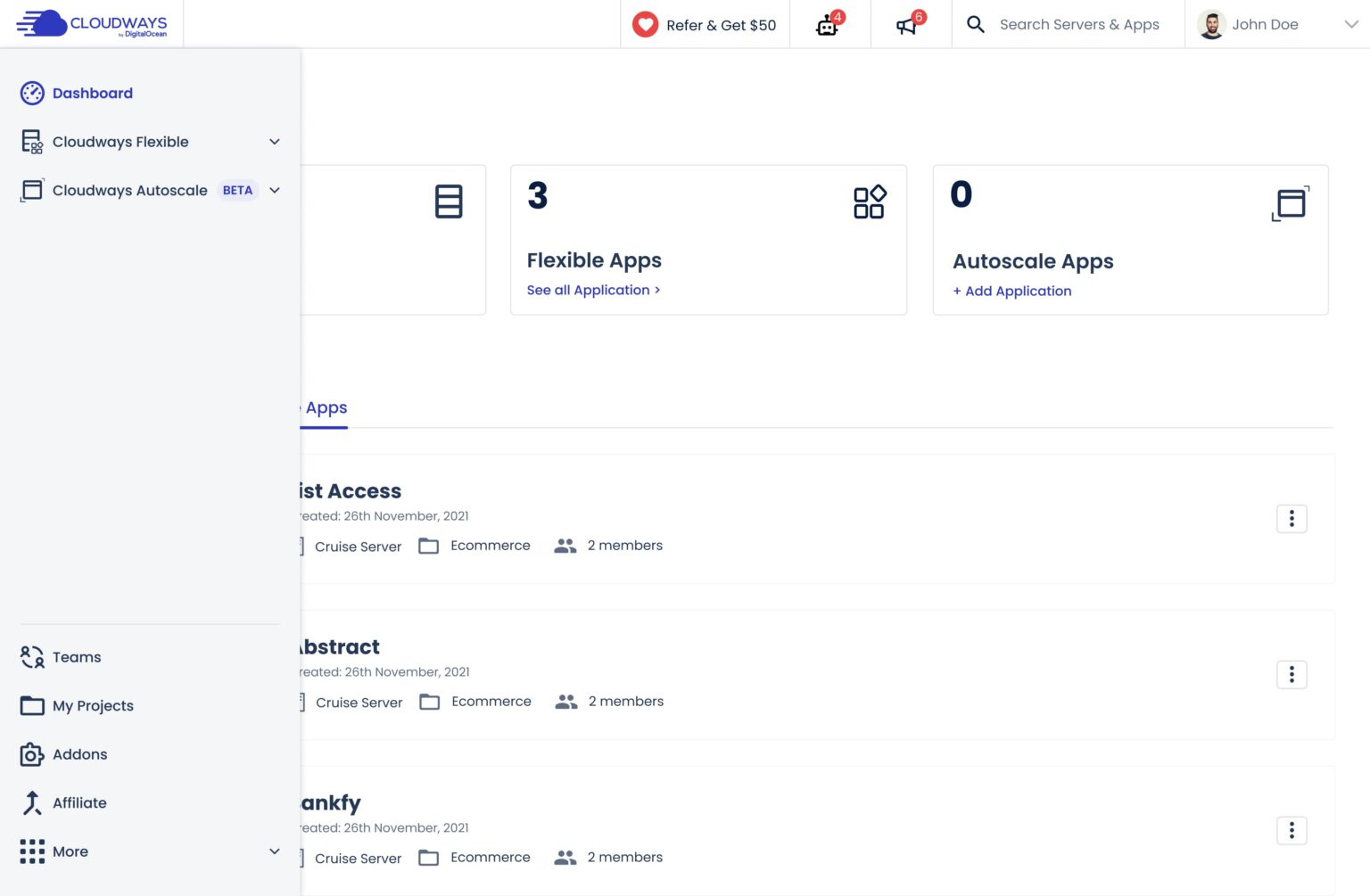
DigitalOcean relies on a combination of Droplets and managed solutions via Cloudways for setup ease, complemented by extensive documentation and community support. Droplets offer flexibility and scalability but often demand more technical know-how to optimize fully. Cloudways, with its one-click actions and intuitive interface, lowers the entry barrier significantly, allowing for quicker server management and application deployment. The learning curve is flatter, making it accessible for users with minimal technical expertise while providing enough tools and features for advanced users.
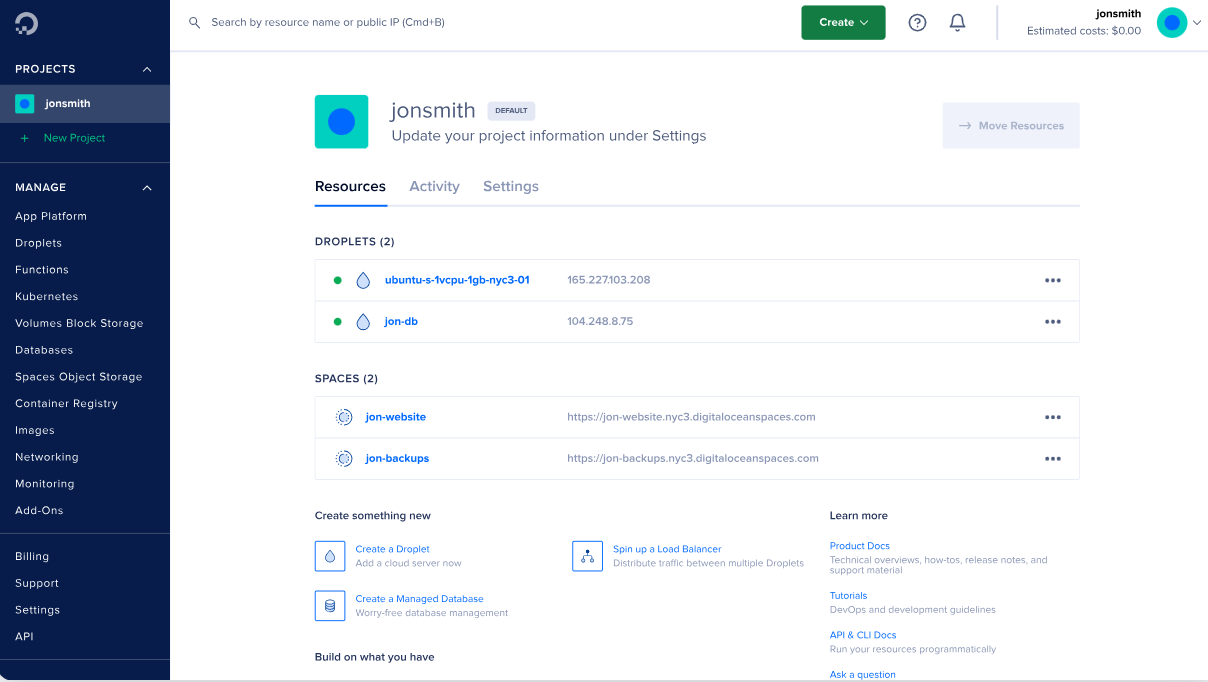
DigitalOcean offers robust documentation and tutorials for users looking to migrate their websites, along with community advice. However, the setup may be more manual for less experienced users. Cloudways stands out with its free migration service for the first website, making transitions from other hosts smoother and hassle-free. This service, paired with a simple migration process, gives Cloudways an edge for users looking to switch hosts without incurring additional costs.
Both DigitalOcean and Cloudways offer extensive help centers to assist users. DigitalOcean’s documentation is detailed and covers a wide array of topics, including tutorials and community support for additional assistance. Cloudways’ help center is centralized and comprehensive, featuring articles, guides, and 24/7 support through live chat and ticketing systems. The community of Cloudways users adds an extra layer of expertise, making it easier for users to troubleshoot and find the information they need promptly.
User management
accessibility.
Score Components:
- Role customization (40%): Flexibility in creating and defining user roles and
permissions. - Ease of management (30%): User interface and tools for managing users.
- Access control (20%): Effectiveness of access control measures for different user
levels. - Scalability (10%): Ability to manage a growing number of users efficiently.
 8.0
8.0
 8.2
8.2
🏆 Winner
DigitalOcean: Known for flexible and comprehensive user management offerings.
When comparing DigitalOcean and Cloudways in managing user roles, permissions, and accessibility, both platforms have their strengths. DigitalOcean offers a straightforward, structured approach with three distinct roles—Owner, Biller, and Member—each with clear access levels. This makes it easier to understand and manage permissions across teams of varying sizes. On the other hand, Cloudways leverages the WordPress admin panel for user management, providing a more detailed granularity in roles, including Super Admin, Administrator, Editor, Author, Contributor, and Subscriber. This allows specific customization of user roles and responsibilities, making it suitable for more complex website management tasks.
From the perspective of user interfaces and tools provided for managing users, DigitalOcean uses a dedicated team management interface, which is simple and intuitive. The interface facilitates easy invitation of new members and tracking the status of each member in a centralized membership table. Conversely, Cloudways integrates with the WordPress admin panel’s familiar UI, which may appeal to those already accustomed to WordPress’s management tools. Both methods provide visual clarity and straightforward navigation for managing users, yet Cloudways might feel cumbersome for those unfamiliar with WordPress.
Assessing the effectiveness of access control measures and each platform’s ability to manage a growing user base, DigitalOcean stands out for its scalability with no limit on the number of team members or roles. This ensures robust team expansion without any structural constraints. Cloudways also offers commendable user management capabilities within the WordPress interface. However, given its dependence on WordPress’s inherent user management system, it may not handle growth as effectively, particularly for very large teams. DigitalOcean’s approach is more seamless as team owners have more control and visibility over member sign-in methods and roles.
DigitalOcean user roles table:
| Role | Description | Access highlights |
|---|---|---|
| Owner | Full access to shared resources, billing, and team settings. | Can manage all aspects of the team and resources including billing. |
| Biller | Full access to billing information only. | Can view, edit, and manage billing information without accessing shared resources or settings. |
| Member | Full access to shared resources. | Can manage and access team resources but cannot view billing or team settings. |
Customer support
hosting provider.
Score Components:
- Support communication channels (30%): Measures the variety of customer support types
provided (live chat, chatbot, email, phone, etc.) - Availability (20%): Assesses the availability hours for each channel, including 24/7
support options. - Technical support quality (30%): Assesses whether the provider offers comprehensive
technical support, including hardware upgrades (e.g., HDD to SSD), software installations, and web
server configuration changes. - Enterprise support (20%): Checks if there are dedicated or priority support services
for enterprise-level customers.
 7.8
7.8
 9.2
9.2
🏆 Winner
Cloudways: Offers extensive support features with 24/7 availability and premium support options.
 |
 |
|
|---|---|---|
Phone support |
||
Live chat support |
||
Chatbot |
||
Email/ticket support |
||
Enterprise support (dedicated agent, priority support) |
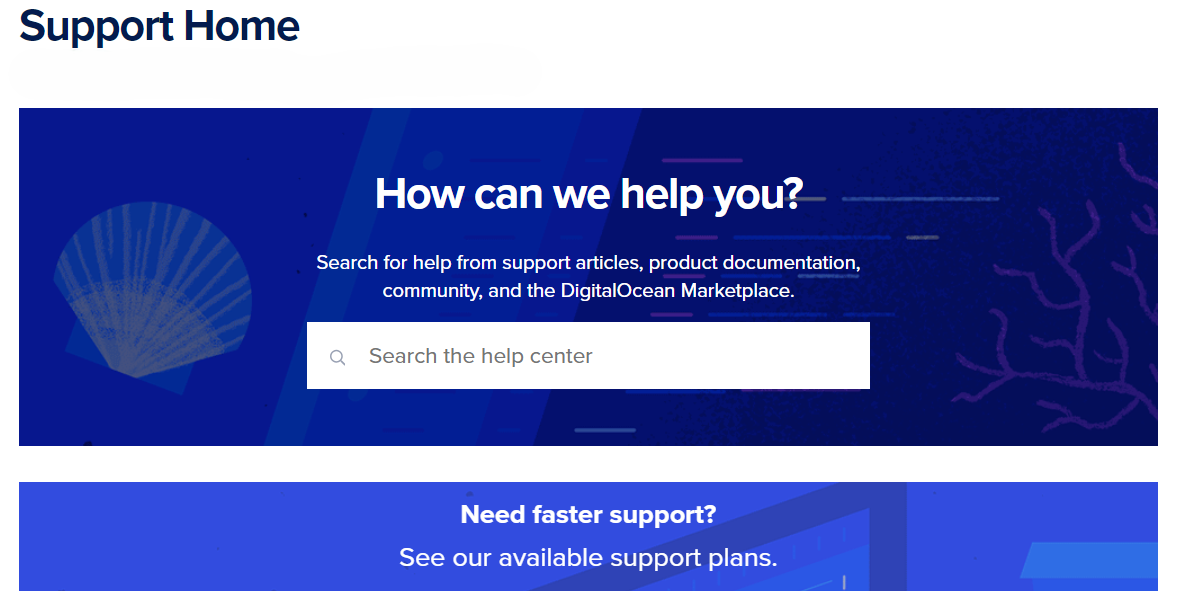
DigitalOcean provides a range of customer support options, including email, online ticketing, live chat (as part of a premium package), community forums, and comprehensive documentation. These options are user-friendly and backed by a service level agreement for critical issues. However, it falls short in offering immediate live chat and phone support to all users.
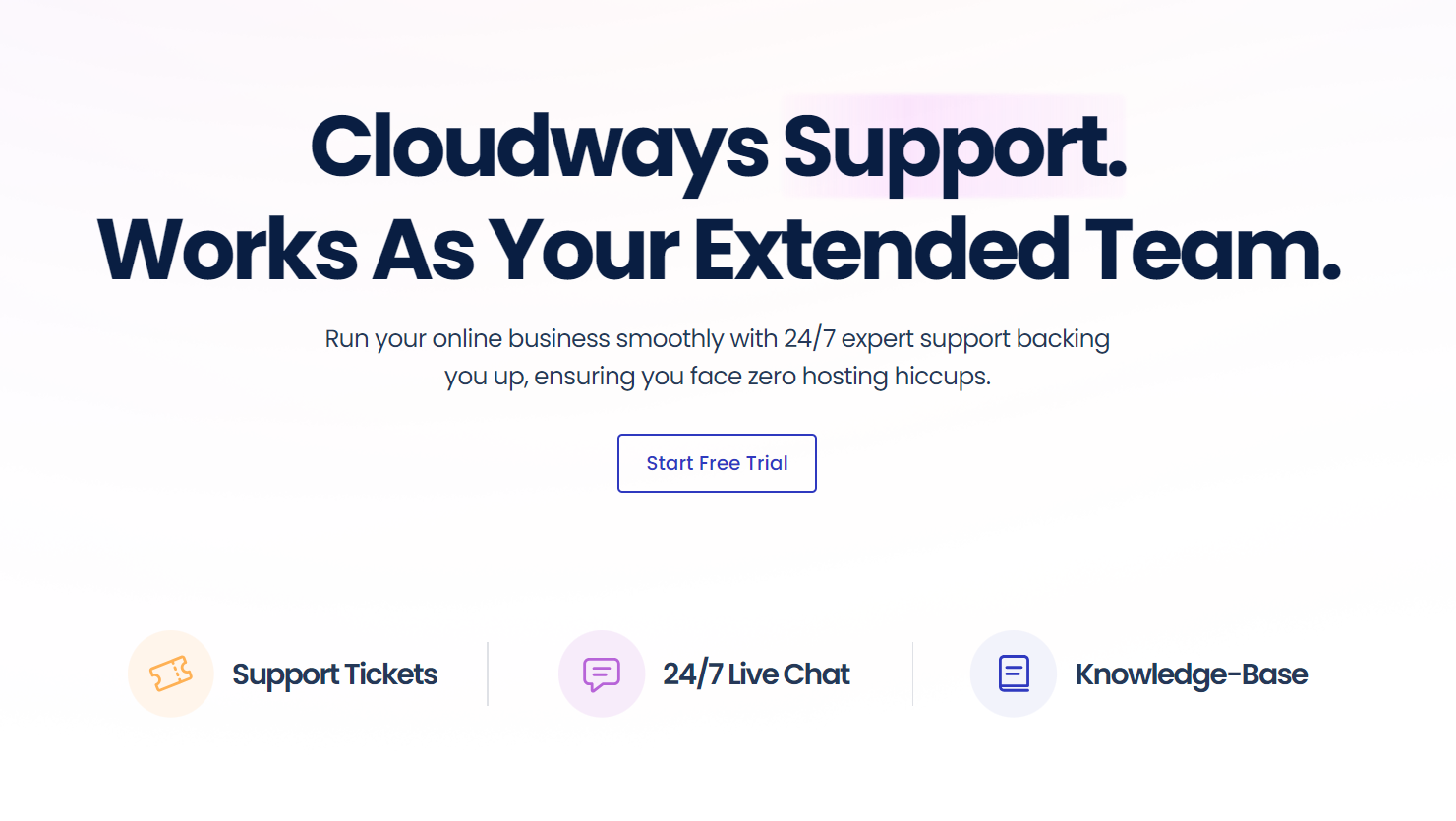
Cloudways, on the other hand, delivers 24/7 support through multiple channels including live chat, email, and phone support with a premium plan. Their different SLA tiers ensure timely responses, and additional features like proactive monitoring and dedicated account managers are available for higher support plans. This extensive support offering makes Cloudways a stronger choice for those valuing accessible and responsive customer service.
User feedback
DigitalOcean consistently garners praise for its simplicity, user-friendly interface, and transparent pricing, making it ideal for both beginners and experienced developers. Users appreciate the straightforward setup, reliable performance, and excellent customer support, highlighting features like one-click deployment and robust documentation. However, there are some minor criticisms, including a limited variety of server configurations compared to larger providers and occasional slow customer support response times. Despite these drawbacks, DigitalOcean is highly regarded for its cost-effectiveness, ease of use, and overall reliability, particularly for small to medium-sized businesses and startups.
Cloudways consistently receives high praise for its ease of use, robust performance, and excellent customer support. Many reviewers highlight the platform’s intuitive interface, effective server management features, and the ability to choose from top-tier cloud providers like AWS and DigitalOcean. Users appreciate the scalable hosting options and reliable customer service, which often includes quick response times and helpful assistance. However, some customers note areas for improvement, such as the absence of email hosting, limitations on server vendor choices, and discrepancies in pricing transparency. Overall, Cloudways is deemed a solid hosting provider, especially valued for its managed hosting features and performance enhancement capabilities.
FAQ
Which platform is better suited for hosting WordPress websites?
Cloudways offers seamless WP integration, built-in caching, and an optimized stack, making it ideal for WordPress hosting. DigitalOcean provides a stable WordPress hosting environment but requires more technical expertise to manage effectively. Cloudways’ user-friendly control panel and one-click WordPress installation make it a more suitable choice for hosting WordPress websites, especially for those who prefer managed services.
Which hosting service offers better security features?
DigitalOcean excels in providing robust security features, including DDoS protection, firewalls, two-factor authentication, and SSH access. Cloudways also offers solid security measures such as built-in SSL certificates, bot protection, and auto-healing servers. While both platforms prioritize secure environments, DigitalOcean’s extensive DDoS protection and automated backups give it an edge in security features.
Which platform offers better customer support?
Cloudways delivers 24/7 support through channels including live chat, email, and phone support with premium plans, along with proactive monitoring and dedicated account managers. DigitalOcean offers email, online ticketing, and live chat (premium package), plus an extensive documentation base and community support. Due to its broader and more accessible support options, Cloudways is often considered the better choice for customer support.
Which service is more suitable for hosting a high-traffic website?
Both DigitalOcean and Cloudways offer scalable solutions and high performance for handling high traffic effectively. DigitalOcean leverages SSD storage and a CDN to distribute content efficiently across 14 data centers. Cloudways integrates advanced caching solutions and vertical scaling options. Thus, either platform can be suitable for high-traffic websites; the choice may depend on specific scaling and performance needs.
How do the providers handle email hosting and what features are included?
DigitalOcean does not offer email hosting services, which could be a limitation for users needing integrated email solutions. Cloudways provides enhanced email capabilities through its Rackspace Email Add-on and Elastic Email, supporting transactional emails and user-managed email campaigns. This third-party integration makes Cloudways a more rounded option for those requiring robust email functionalities.
The making of this blog
We followed a clear, step-by-step process to write and research this article.









